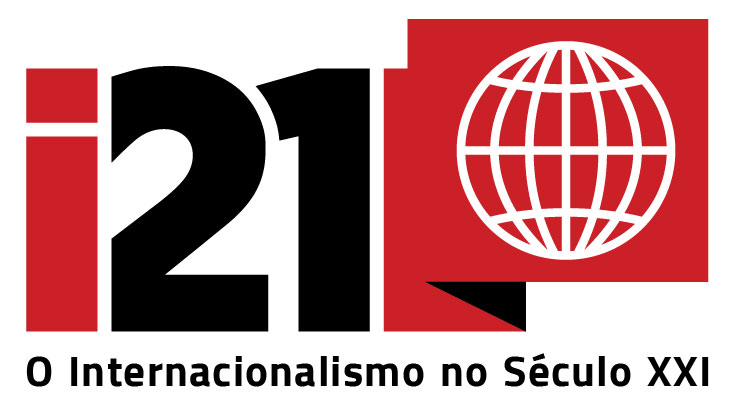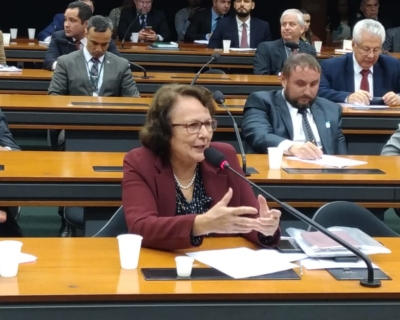Scientist praises the opposition’s vote on the Alcântara Base agreement

Professor at the University of Brasília (UnB) and former director of the Brazilian Space Agency (AEB), the engineer Carlos Gurgel talked to Portal Vermelho about the House of Representatives’ voting session on the Agreement on Technological Safeguards. He stressed the importance of the reservations made by the separate votes of PCdoB, PDT and PSB[1] Representatives and stated that Brazil cannot give up on the agreement with China due to the agreement [with the United States] for the use of the Alcântara Space Center, in the Federal State of Maranhão
By Iram Alfaia, Portal Vermelho
With post-Doctorate research at the National Institute of Space Research (INPE) and the University of Washington (United States), the scientist is among the conceivers of the course on Aerospace Engineer at UnB. In his exclusive interview with Vermelho, Professor Gurgel said that Brazil progressed with the project for a China–Brazil Earth Resources Satellite (CBERS). “We have evolved with China in the field of remote sensing satellites. One was already launched and another one is in preparation for launch”, the scientist said, referring to CBERS-4A.
He pointed out that the agreement’s approval by the Commission of Foreign Affairs and National Defense in the House of Representatives, this Wednesday (21 of August), spurred some interpretations that may put obstacles to the development of the Brazilian space program. However, he viewed the separate vote cast by representatives of the opposition favorably, highlighting that Brazil must keep its “autonomy in decisions regarding those with whom it will cooperate in the space theme and, therefore, conduct activities in the Launch Center.”
The voting session at the Commission of Foreign Affairs and National Defense received the separate votes of Perpétua Almeida (PCdoB, Acre Federal State) and Paulo Ramos (PDT, Rio de Janeiro Federal State), and another one from PSB, cast by Camilo Capiberibe (Amapá) and Bira do Pindaré (Maranhão).
The agreement’s provisions forbid launches of ballistic missiles from Alcântara in partnership with countries that gave support for terrorist acts or which are not parties to the Missile Technology Control Regime (MTCR). In the first case, the demands go against the Brazilian Constitution and, in the second is null because Brazil already is signatory to the MTCR. The researcher argues that that was aimed at China, since the country is not a party to the MTCR.
He considered a positive move the fact that Representative Perpétua Almeida included in her separate vote the statement that Brazil shall not be negatively impacted in its “satellite program developed in cooperation with China, and it does not accept restrictions that affect the already positive partnership with China in another area, which is the logistics for 5G Internet.”
“No safeguard agreement could put limits. What is more: the partnership with China should be reviewed, naturally, updated, but never extinguished. We already know how to work with the Chinese and they are becoming a power in the space topic”, he argued.
Although the partnership with China is uncertain due the change in [Brazil’s] Government, Gurgel says that the Government should look ahead, since the Chinese have ambitions programs for that field. “The Chinese have a huge system of infrastructure in the space field. They are looking into the future, into 20, 50 and 100 years, so Brazil cannot relinquish this partnership,” he states.
The UnB Professor argues that the agreement must not present obstacles to Brazil’s establishment of partnerships with those it considers important to do so, such as China, India and Argentine. Regarding the Argentinean, he views a partnership favorably. “Argentine is developing a launch vehicle. It never said anything about that, but through the partnership that can be accelerated and it could operate in Alcântara”, says the scientist, for whom that country has difficulties in launching from Equatorial orbit because it is located too lower South and has low-powered rockets.
Use of resources
Another measure considered null in the agreement pertains the use of financial resources collected from the launch activities in the acquisition of ballistic missiles. In other words, as a party to the MTCR, Brazil is not on that track. The provision, according to the [separate] vote, aims only to embarrass the Brazilian side.
The researcher considers this provision US paranoia or concern for having to have yet another country under observation. He cited as an example the SS-18 Satan missile developed by Ukraine. “Nicknamed Satan, it still is the world’s most powerful intercontinental missile. It was developed in the 1970s and forms the central base of Russia’s power to this day.”
By deactivating some of them, Russia started to use them as satellite launchers, including [for] a Brazilian one. This is because, from the technological perspective, one must only remove the nuclear warhead and replace it for another load. The US concern is that the opposite can be done.
According to Gurgel, another matter in that provision in the agreement is that public money is not labelled. “How will the US keep track of these resources? They can go to the Treasury’s cashier, the Municipal administrations or the Federal States. It would be easier if they went to an account in the space agency,” he says.
Land issue
Carlos Gurgel considers the situation of quilombolas[2] and of other people living near the Alcântara Station dramatic. He also saw as justified the separate vote’s stress on the need to officially recognize the land’s status and of effective public policy that aims to improve the population’s living conditions.
He argues that all those living in the area can be the victims of accidents due to equipment and the storage of rocket fuel. “Our first concern is to protect their lives. Are we also polluting the environment? Will we cause damages? That must be a constant concern”, he warns.
The UnB Professor believes that at least initially, there is no need for the station’s area to be expanded. In his opinion, the launch center does not raise the same international interest as it did 20 years ago. This is due to the new technologies emerging that allow for the reuse of launch vehicles and the launch from maritime platforms, which enables operations from the Equatorial line.
In Alcântara’s case, which is near the Equator line, there is availability of ocean to the North and the East. “There you can face the sea ahead of you and on your side. That allows for a launch without insurance because all parts will fall into the sea”, he explained.
Business framework
The Professor also agreed with one of the conclusions in the separate vote stating that the commercial exploitation of the launch center is not enough to guarantee the successful recovery of the Brazilian Space Program (PEB).
He also agrees that the agreement enables the country to make it possible to conduct business with many nations, since 80% of the space technology would have some component made in the USA. However, he argues for a greater dynamism in the business framework to be adopted. He disagrees, for instance, with the demand for only one company [to be] integrated. “It is very difficult for a company to be the integrator of satellites and launch vehicles, because these are two totally different activities, the company would become too expensive”, he argues.
The Professor considers that Avibras, a Brazilian company based in São José dos Campos (in São Paulo State), with 50 years of experience in the aerospace sector, would fulfill the role of integration in the production of launchers.
As for the satellites, the engineer says that Visiona, a joint-venture between Embraer and Telebras dedicated to the integration of space systems, would be suited to develop the technology. He argues for the country’s entry into the market of small satellites, which, according to him, will be majoritarian in the future.
Before elaborating a specific program for the sector, Carlos Gurgel says that it is necessary to identify the country’s needs in various sectors, so that the process’ start is versatile.
“We must also map the needs of fraternal countries in Asia and Africa with economies similar to ours. The keywords are versatility and efficiency in making business models, for instance, based on start-ups, things that are swift and lean.”
[1] PCdoB – Communist Party of Brazil; PDT – Democratic Labor Party; PSB – Brazilian Socialist Party. NT.
[2] Quilombolas are the residents of quilombo remnant communities. Quilombos were communities formed during colonial Brazil by enslaved people brought from Africa, or Afro-Brazilians, who fled captivity and resisted enslavement. NT.





